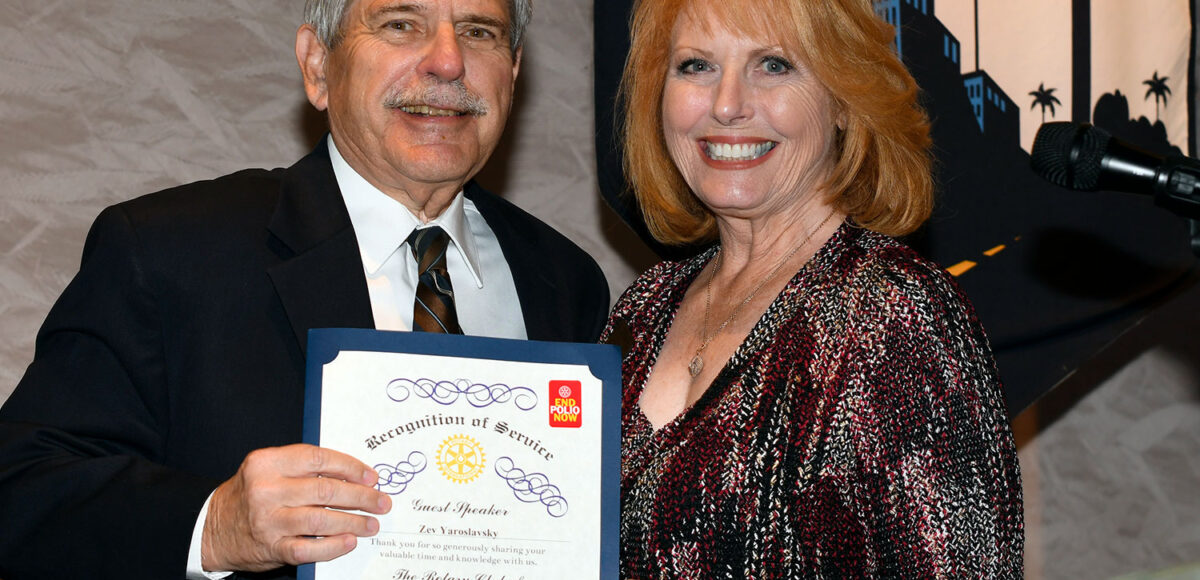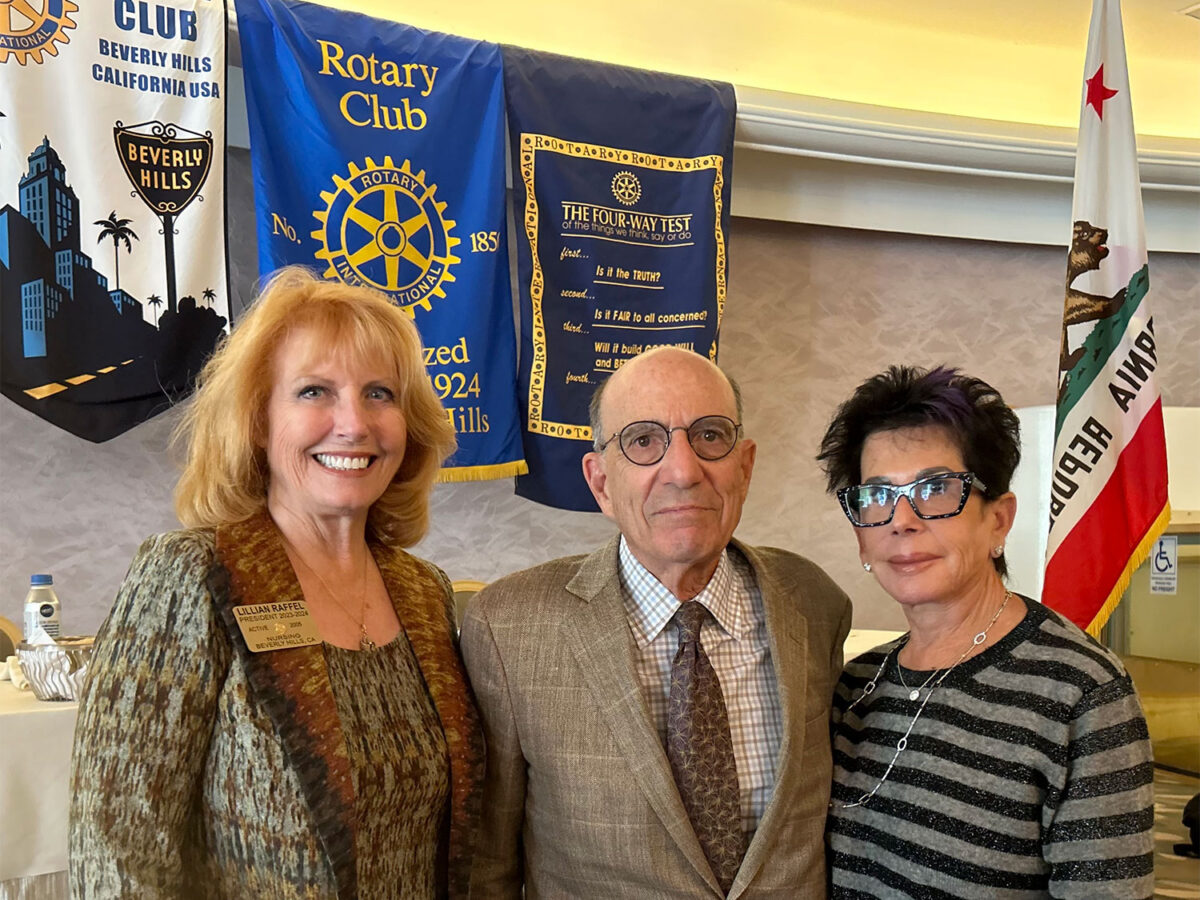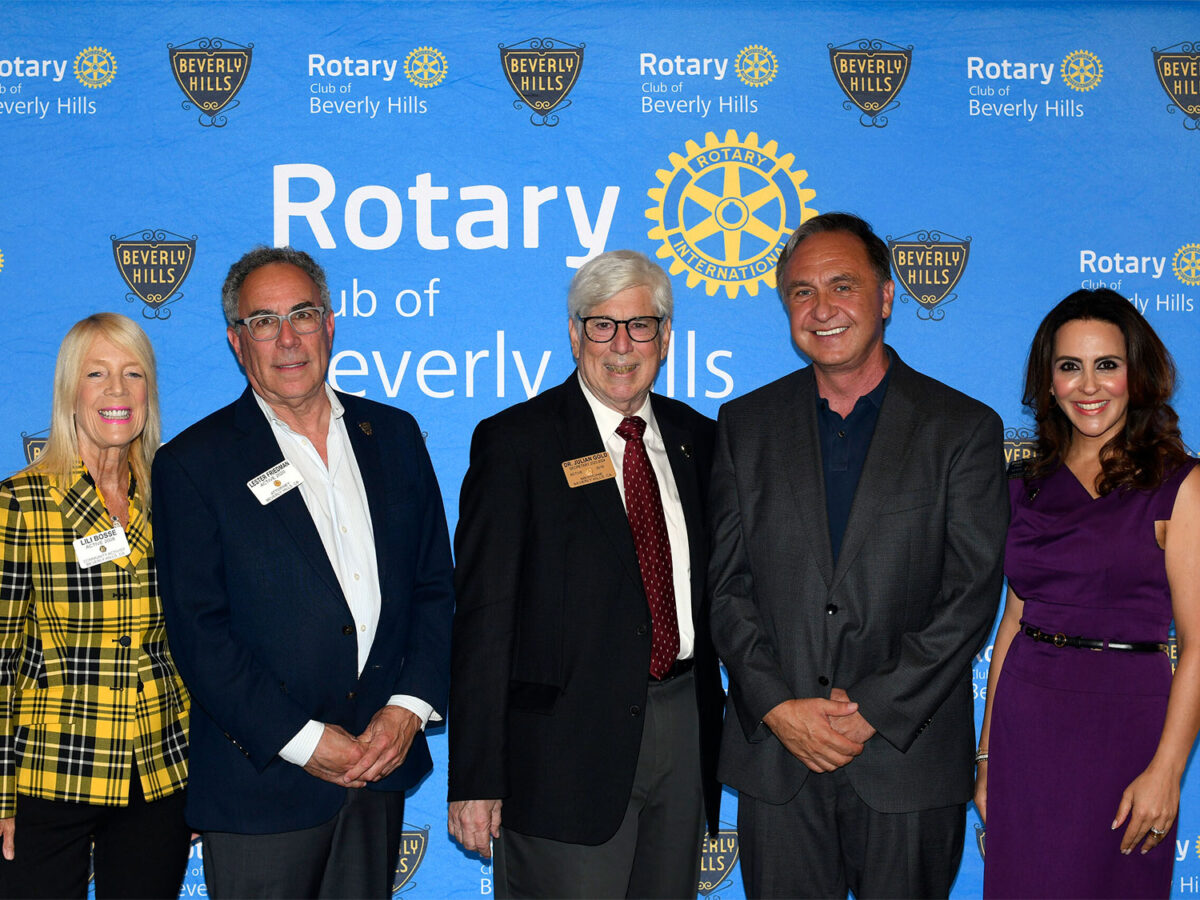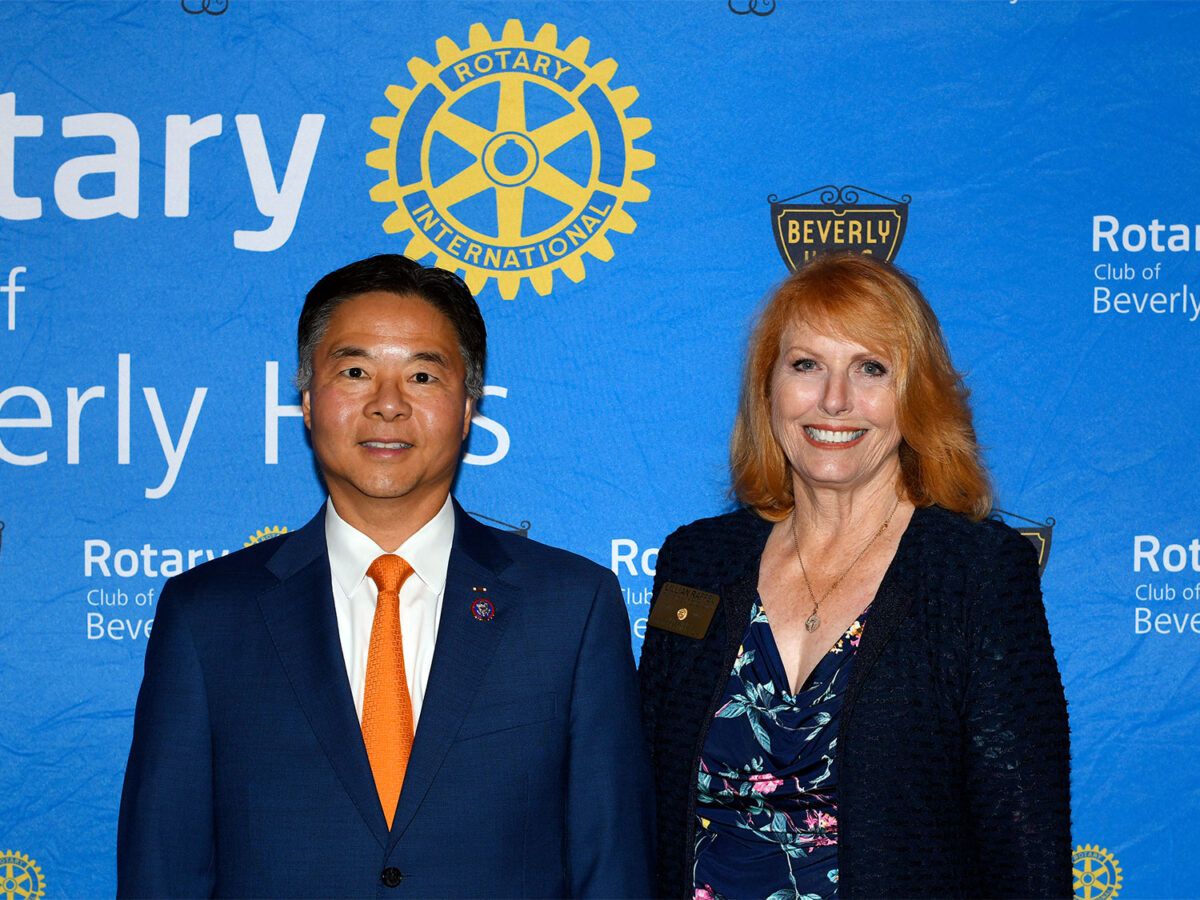He left elected office nearly a decade ago, but Zev Yaroslavsky has yet to leave the political landscape of Los Angeles. His tenure of nearly four decades in public service (two on the Los Angeles City Council and two on the Board of Supervisors) overlapped some of the most seminal events in the Southland’s history. Yaroslavsky was but 26 years old in 1975 when first elected to represent the City Council’s 5th District. Now, as an elder statesman, a memoir published earlier this year looks back on a career that in many ways shaped the Los Angeles of today. In his current role as Director of the Los Angeles Initiative at the UCLA Luskin School of Public Affairs and the Department of History, Yaroslavsky is helping to shape the Los Angeles of tomorrow.
Yaroslavsky reflected on LA politics, history and the memoir encapsulating the two, “Zev’s Los Angeles: From Boyle Heights to the Halls of Power” at the Rotary Club of Beverly Hills luncheon on Oct. 23.
To no one’s surprise, he first spoke about Israel.
“I personally am obsessive-compulsive about what’s going on in Israel. I have a sister who lives there, two great nephews, one who’s in the military and one who was just called back. So, this has been a very difficult time for all of us, especially those of us who have friends and relatives back there and for everybody who’s suffering in this mess, and it’s not the only place in the world where we’re in trouble…But I’m here to talk about something a little more uplifting, I hope,” said Yaroslavsky.
He then described three reasons for writing his book. The first is to leave a legacy for his grandchildren. The second, he explained, was to fulfill his training as a historian.
“I received my B.A. in economics and history from UCLA and then my master’s in British Empire history from UCLA. I believed in writing my story it is not just my story, it’s a history. And one of the things that I was so gratified about when the book came out is Jim Newton of the LA Times, who reviewed the book, called it an ‘essential history,’ which is exactly what I wanted it to be.”
Yaroslavsky added that the third reason he wrote the book is to provide a “how-to” for those who may want to go into public service or public policy. His intent is to enable others to “learn from the successes and the failures that me and my colleagues made over the years.”
One of the major themes in Yaroslavsky’s memoir (and in his speech) is that public service in Southern California is complicated. To illustrate the point, he relayed an amusing story that took place during the official visit to Los Angeles in 1983 by the late Queen Elizabeth II and Prince Philip, Duke of Edinburgh.
“There was a big reception for them at the Music Center. About a thousand people were jammed in there, and everybody was trying to get a picture with the Queen. Out of the corner of my eye, I noticed that Prince Philip was standing by himself on the side. So, I took a couple of my colleagues over to keep the Duke of Edinburgh company. We introduced ourselves and the Duke said, ‘I’ve met the mayor, and I know who he is. I’ve met the supervisors though I don’t know what they supervise. Now I meet you councilmen. I don’t understand the genius of your system.’”
Yaroslavsky continued, “So, we gave him a two-minute tutorial about the state-local government relationship. There are 58 counties in California. Los Angeles is the biggest one, but there are 57 others. There are 88 cities in Los Angeles County. Los Angeles city is the biggest city of them all, but there are many others. And then we have several dozen school districts, a dozen or more water districts, a flood control district, an air quality management district, a transit district, and of course, the all-important mosquito abatement district. At which point the Duke peered over his glasses and he said, ‘I think I now understand the genius of your system.’ And I said, ‘What is it? He said, ‘It’s designed not to govern.’”
“Truth is,” said Yaroslavsky. “He was right. It wasn’t designed not to govern. But it was designed not to concentrate too much authority in one place.”
He noted that in contrast, in New York City, everything is under the mayor.
“Transportation, healthcare, public health transit, everything that has to do with the local government comes under the mayor’s control there. But, in Los Angeles, every one of those things is separate. Health and welfare is with the county. Transit is with the MTA. And municipal issues are with the 88 cities. The net result is power and authority are quite dispersed, which makes it very complicated to get things done,” he said.
Yaroslavsky described the fact that the county does not have an elected executive as “a great failing.”
“It doesn’t have an elected mayor. It would be the 12th largest state in the union if it was its own state. The county of Los Angeles, 10 1⁄2 million people, a budget of, I think it’s now $45 or $46 billion, 115,000 employees. And yet it’s run by a committee of five people. I was one of them. I said when I retired that this is the worst form of government I could ever imagine unless you’re one of the five. I was one of the five. But it’s a terrible system.”
He does, however, believe it is possible to govern even with a flawed system. He emphasizes this to his public policy graduate students at UCLA.
“That’s really the message of my book. I wanted people to understand that just because you have barriers and mines in the minefield that may make it more difficult for you to do something, it doesn’t mean you can’t do it. And we made it work on a lot of complicated issues,” he observed.
The 1984 Olympic Games were one such complicated issue. Rather than sign a blank check for cost overruns, a well-timed Charter Amendment ensured that tax dollars would not be at risk. In the end, the privatized games turned a profit of $250 million.
“That would not have happened but for a bunch of us having the desire and the leadership to try to navigate the minefield instead of just pontificating about it and not doing anything about it,” said Yaroslavskly.
Other issues have yet to emerge from the minefield, despite the passage of time. Yaroslavsky minces no words on the homelessness crisis.
“We wasted a decade and a half in the last decade and a half. We could have made a big dent in homelessness if we had just followed a pilot program that I was involved with in 2007, Project 50. We did a demonstration project that showed that it is cheaper to house people than it is to keep them on the street. When they’re on the street, they land in our hospitals, they land in our jails. Paramedics have to come treat them from time to time. It is less expensive to house them and give them services than it is to leave on the streets. It’s kind of counterintuitive, but it’s true. And we should have scaled that project up in a matter of several years, and we didn’t. As a result, we have what we have today,” he said.
He does add a hopeful tone about the tactics of LA Mayor Karen Bass. Specifically, her declaration of a state of emergency has given her the power to expedite projects to house the homeless.
“The main thing she did by declaring a state of emergency is she said, ‘I’m in charge. I’m putting the bullseye on my back. I’m taking responsibility for this issue. It’s not the council, it’s not the Board of Supervisors, it’s not the governor, it’s not the president, it’s me, and judge me by the results.’ And I can’t tell you how significant that action she took. No mayor, not Garcetti, not Villaraigosa, not Hahn, nobody would’ve dared to do this,” said Yaroslavsky.
Bass, said Yaroslavsky, is “liberated” because she is not running for anything else.
The need for politicians to take bold moves, even if they fail, is another theme of his book. He described a visit with the late Mayor Richard Riordan to Curitiba Brazil, to inspect the transport system that would eventually become the inspiration for the Orange Line in the San Fernando Valley. As they were leaving, the local mayor said to them, “Have the courage to try simple solutions. The solutions are staring you in the face. You just don’t recognize them.”
Concluding, Yaroslavsky noted, “As the old saying goes, Wayne Gretzky did not make 100% of the shots he didn’t take. You’ve got to take your shot.”







